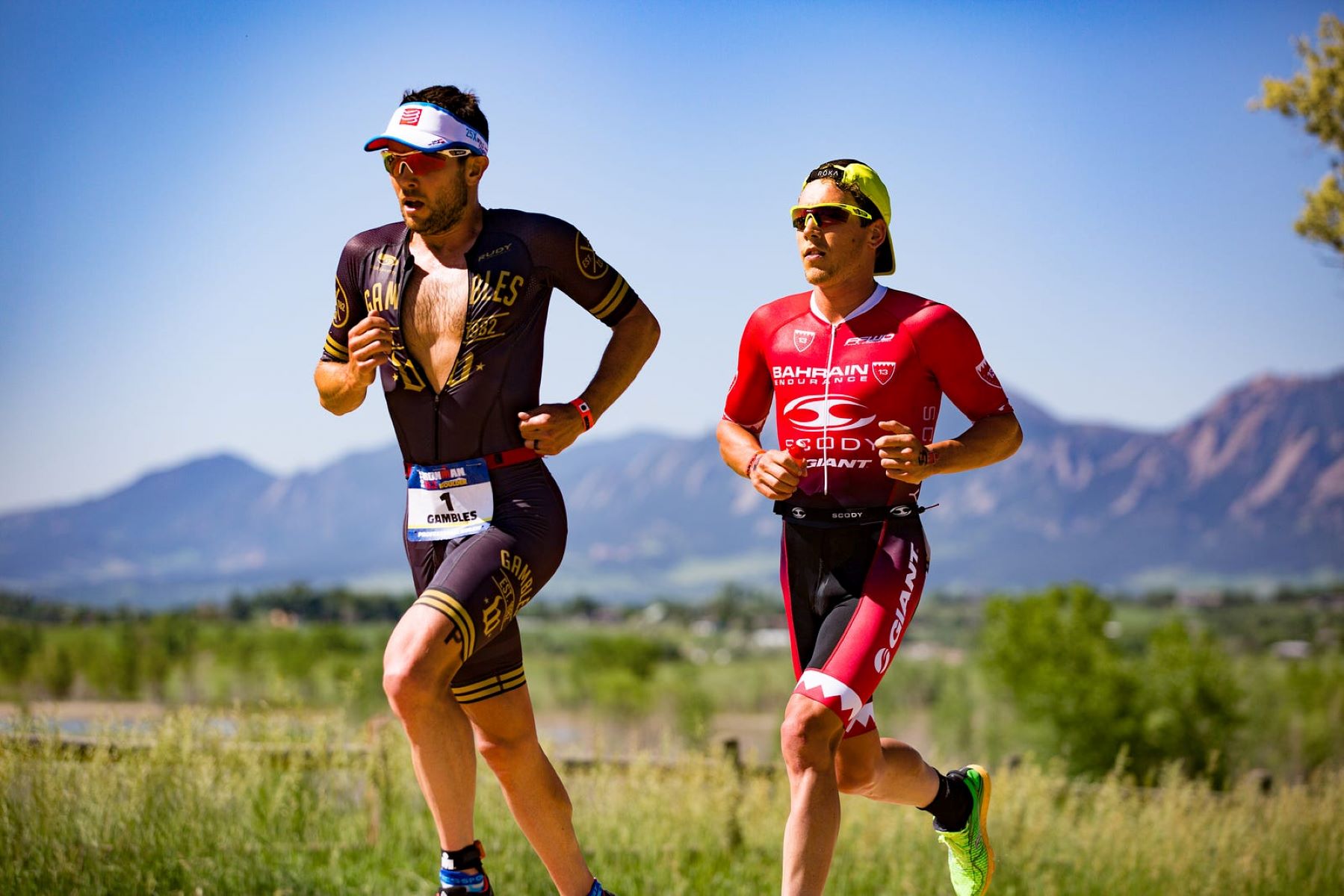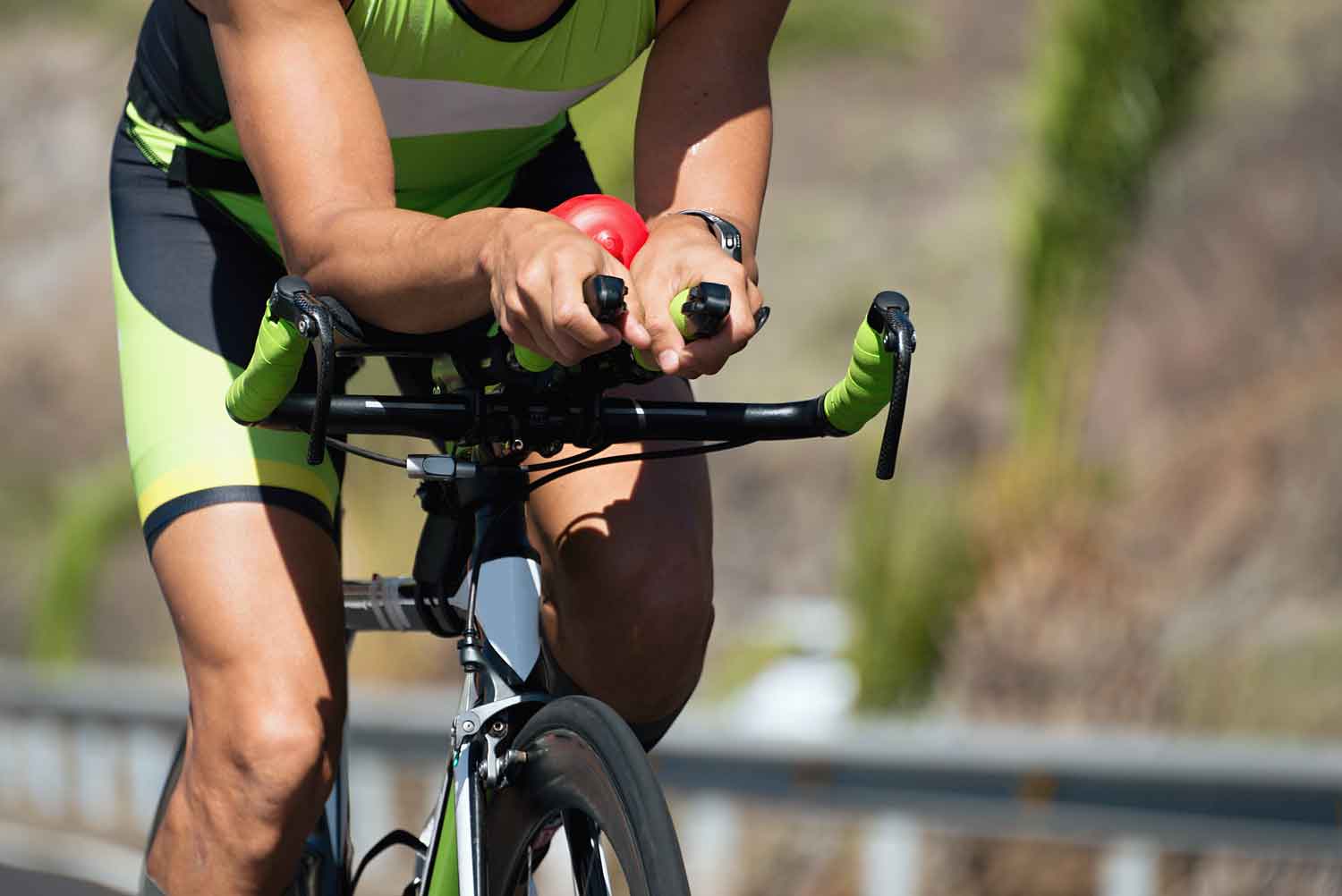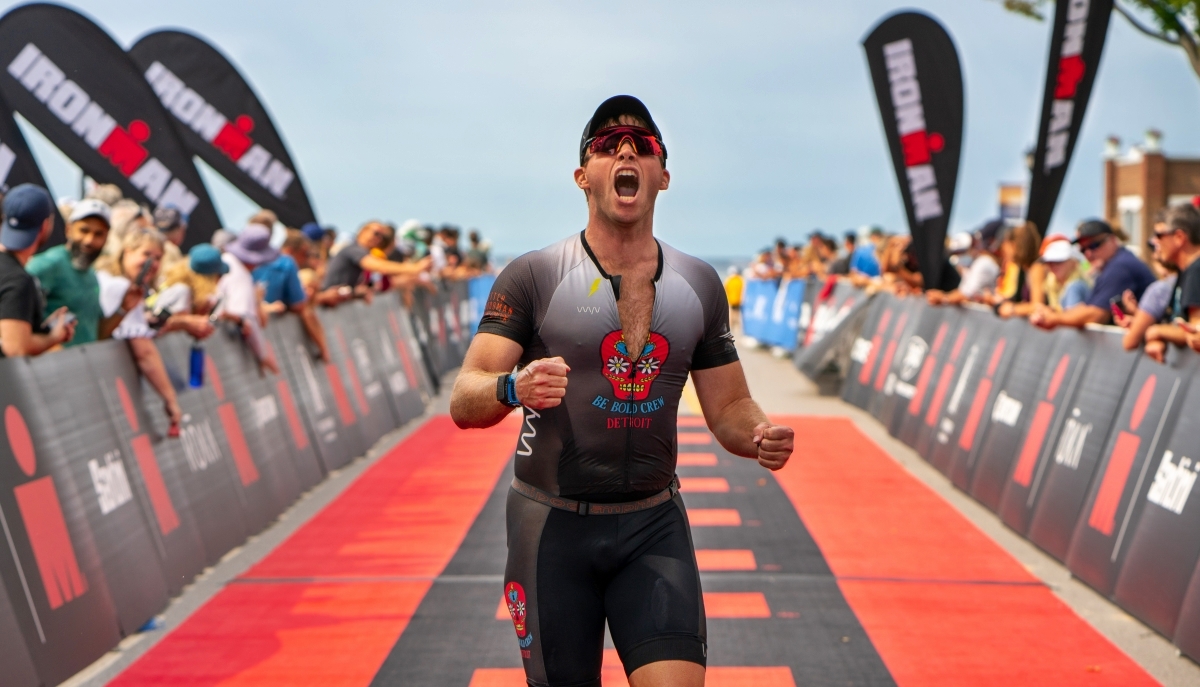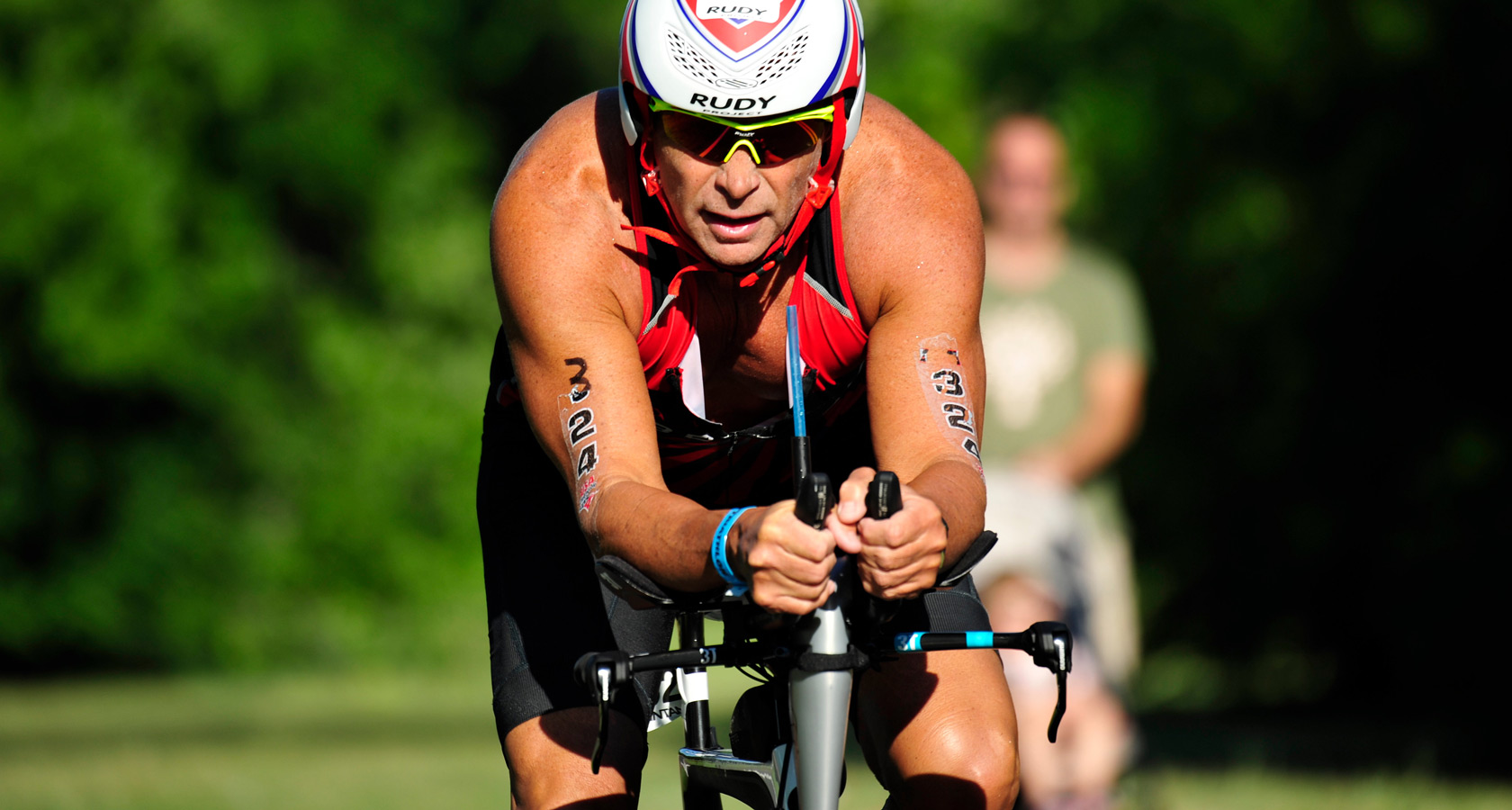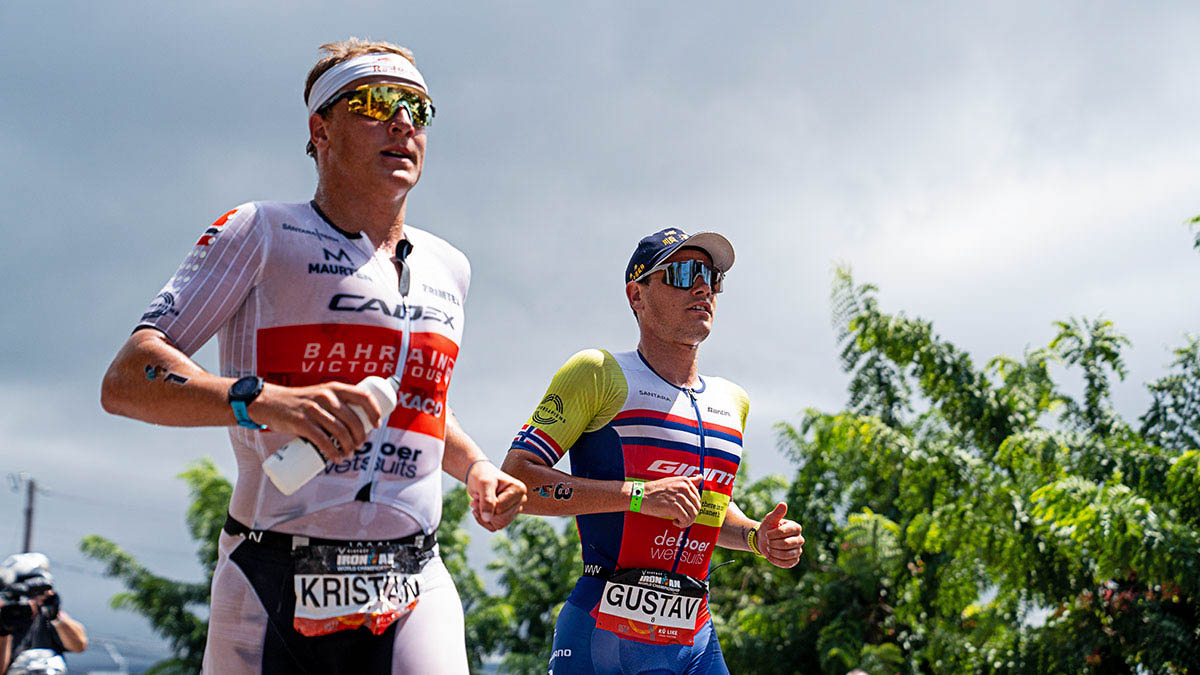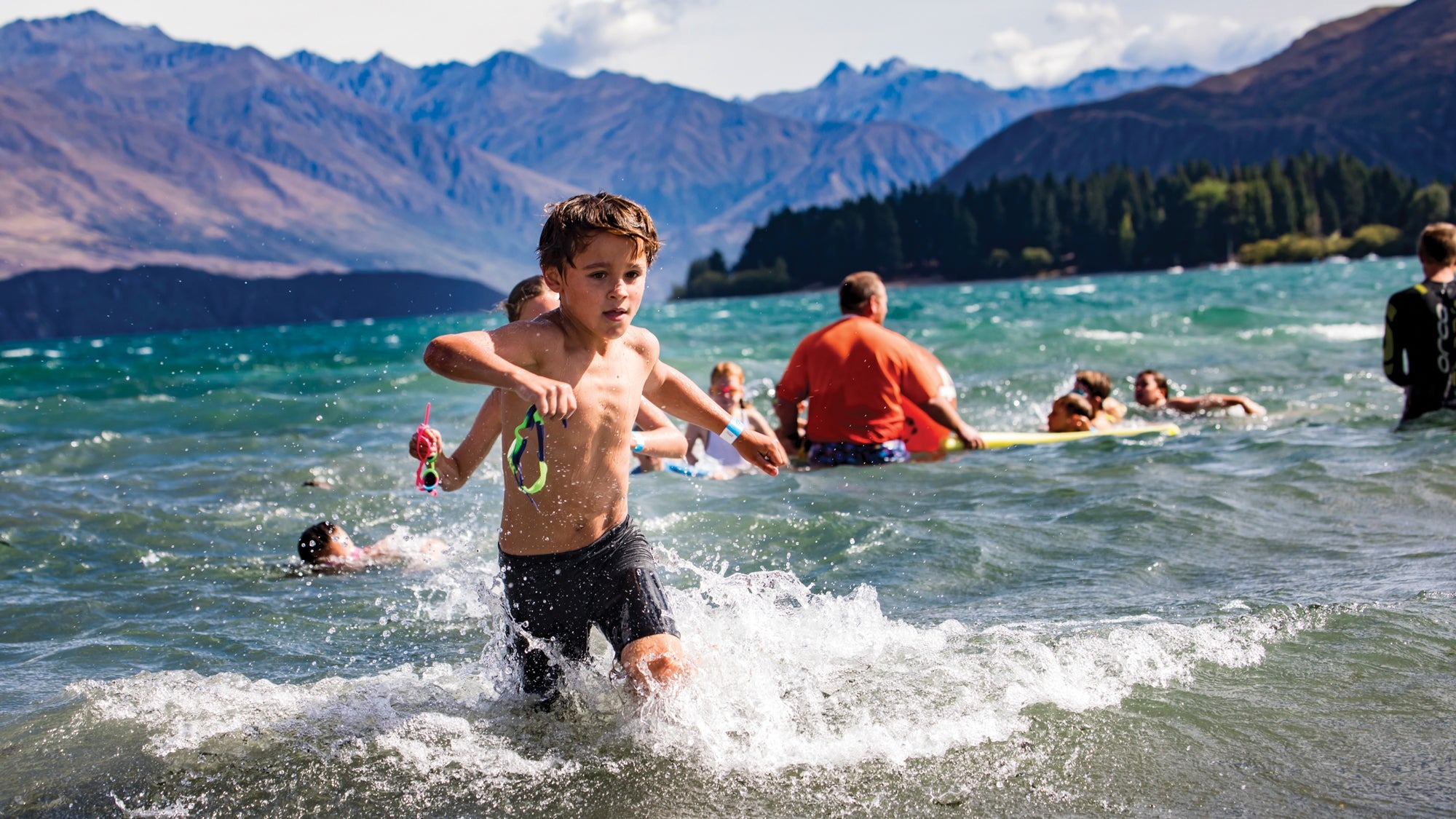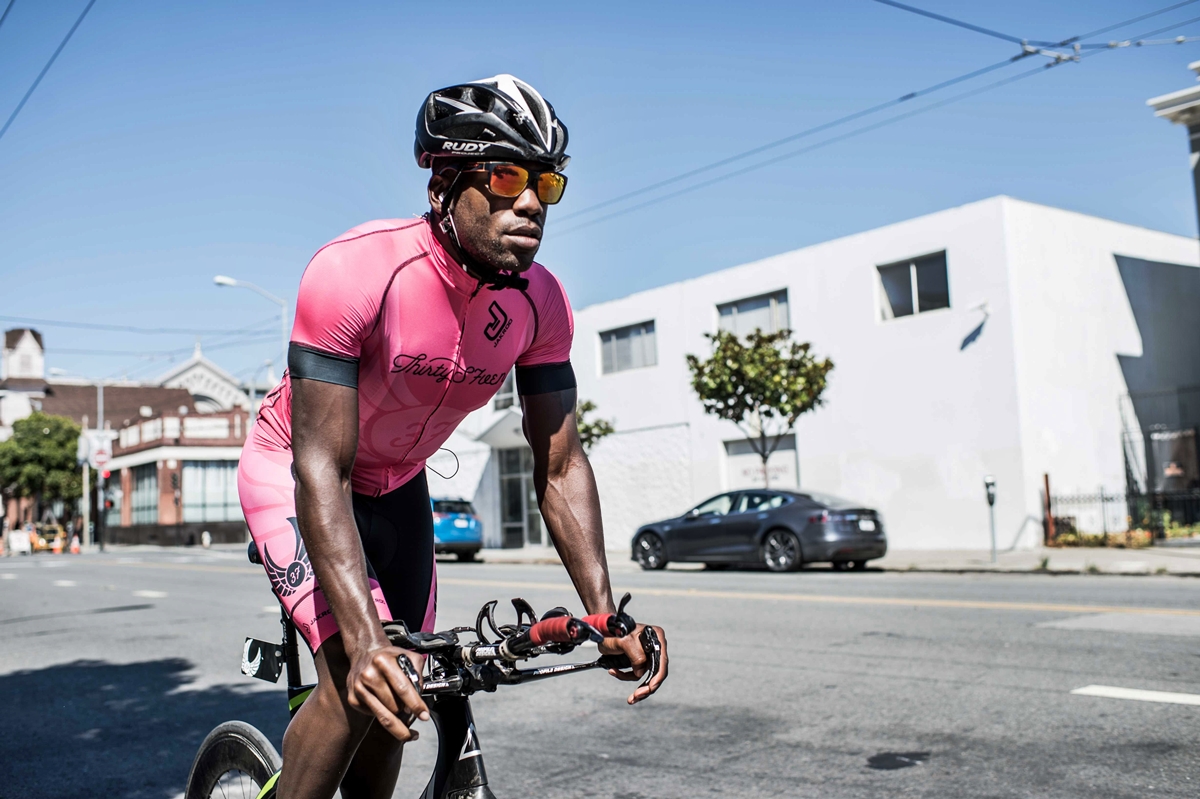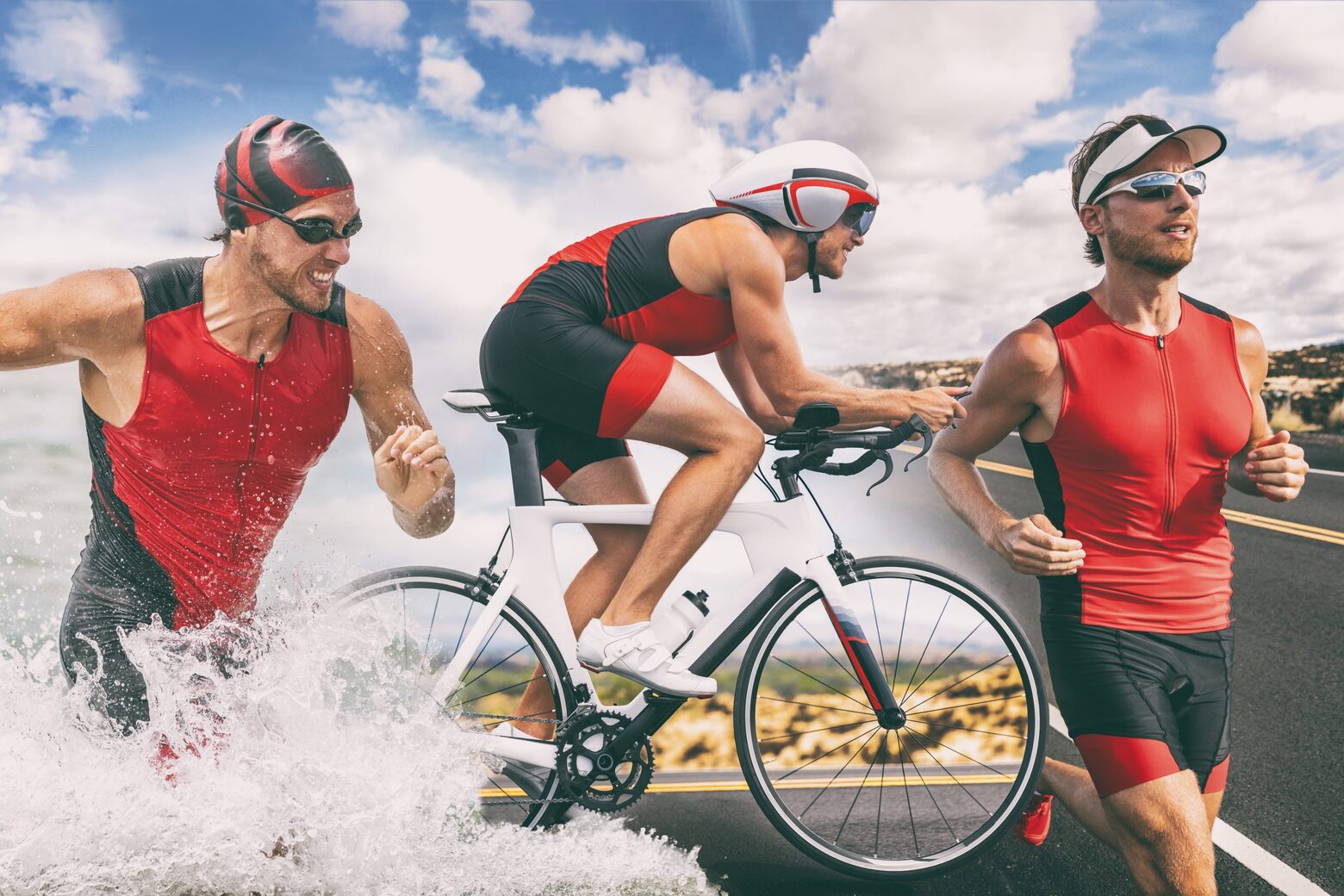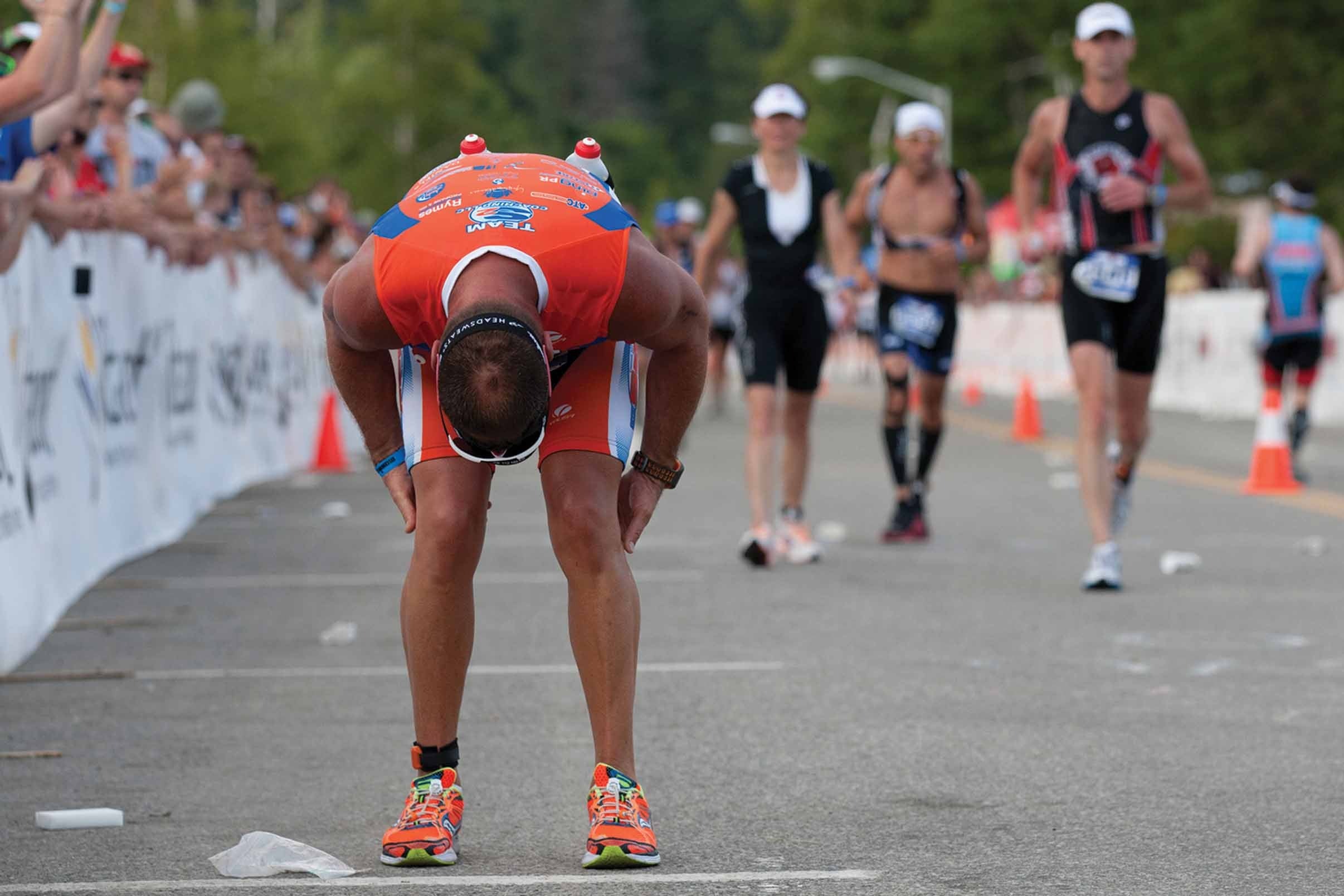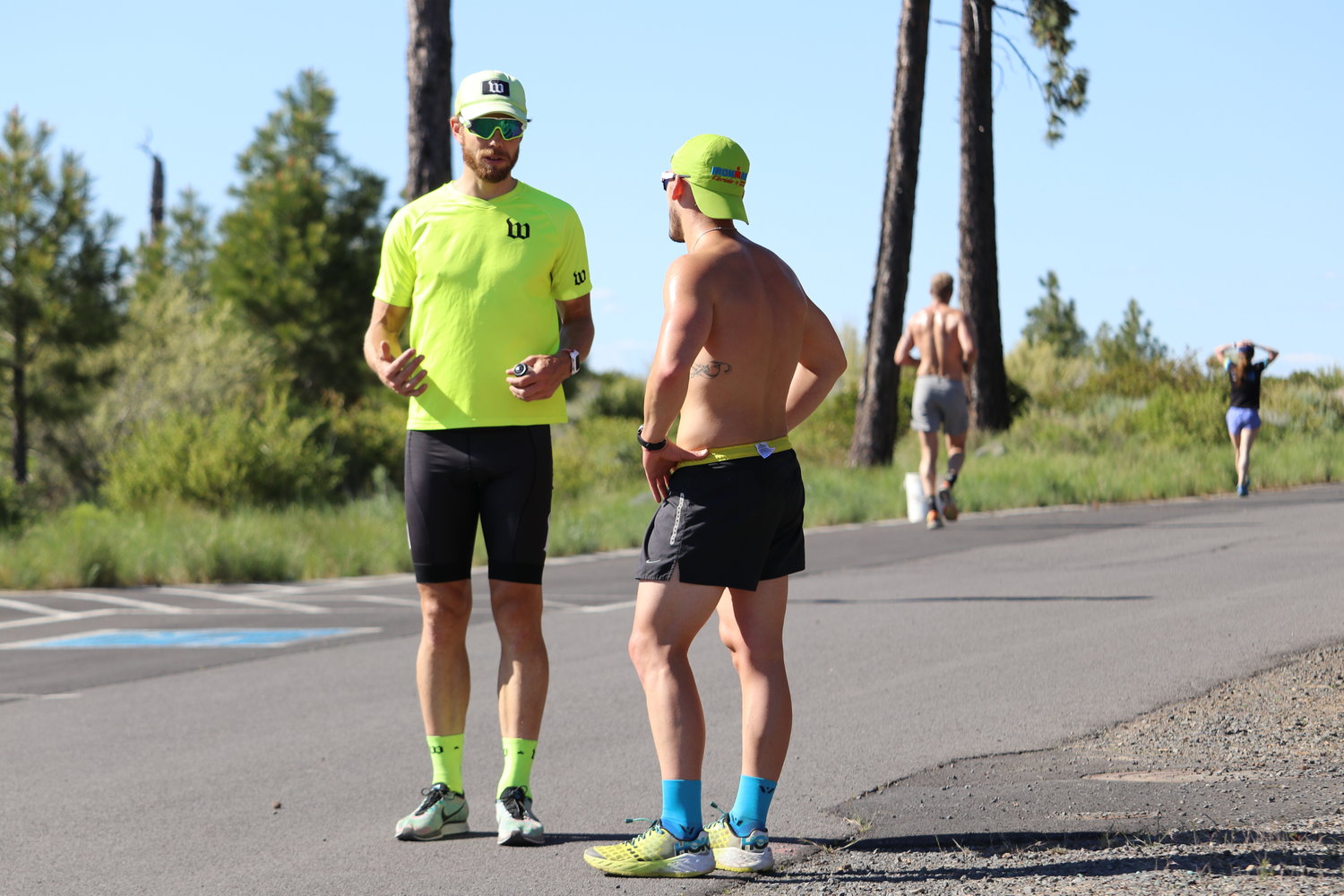

Featured
How To Find A Good Triathlon Coach
Modified: January 2, 2024
Looking for a featured triathlon coach? Discover how to find a good one and take your training to the next level with our expert tips and advice.
Introduction
Welcome to the world of triathlon, a challenging and exhilarating sport that combines swimming, cycling, and running into one epic race. Whether you’re a seasoned athlete or a beginner looking to embark on this exciting journey, having a triathlon coach can make all the difference in your training and performance. In this article, we will explore the importance of finding a good triathlon coach and provide insights on how to go about finding one.
Triathlon is a unique sport that requires a high level of physical endurance, mental strength, and technique mastery in three different disciplines. Balancing the demands of swimming, cycling, and running can be overwhelming, and that’s where a triathlon coach comes in. A coach will not only guide you through your training but also tailor a program specifically to your abilities and goals.
Perhaps you’ve been competing in triathlons for a while, but haven’t achieved the results you desire. Or maybe you’re new to the sport and looking for expert guidance from the get-go. Whatever your situation, a good triathlon coach can help you take your performance to the next level.
So, what exactly does a triathlon coach do? They provide you with a structured training plan, offer valuable feedback on your technique, help you set realistic goals, and keep you motivated throughout the process. Additionally, coaches can provide insights on race tactics, nutrition, injury prevention, and recovery strategies to optimize your performance on race day.
However, not all triathlon coaches are created equal. Finding the right coach who aligns with your goals, personality, and training style is crucial for a successful coach-athlete relationship. The process of finding a good triathlon coach may seem daunting, but with the right approach, you can find the perfect match for your needs.
In the following sections, we will delve into the qualities to look for in a triathlon coach, where to find them, questions to ask potential coaches, how to assess their credentials and experience, and the costs associated with working with a coach. By the end of this article, you will be equipped with the knowledge and tools to find a good triathlon coach who will help you reach your full potential in this demanding and rewarding sport.
Why You Need a Triathlon Coach
Triathlon is not just a race; it’s a multi-disciplinary challenge that demands expertise in swimming, cycling, and running. Without professional guidance, it can be difficult to navigate through the intricacies of each discipline and develop the necessary skills to excel in all three.
A triathlon coach is a valuable resource for athletes looking to improve their performance and achieve their goals. Here’s why you need a triathlon coach:
- Customized Training Plans: A triathlon coach will design a training plan tailored to your specific abilities, goals, and schedule. They will take into account your current fitness level and gradually progress your training to help you reach peak performance on race day. With a customized training plan, you can maximize your training time and avoid overtraining or undertraining.
- Technique Improvement: Each discipline in triathlon requires specific techniques to swim efficiently, cycle with power, and run with proper form. A coach will provide guidance on technique improvement, correcting any flaws in your form, and helping you become more efficient in each discipline. By honing your technique, you can conserve energy, improve speed, and reduce the risk of injury.
- Accountability and Motivation: Training for a triathlon can be challenging, both physically and mentally. Having a coach by your side provides accountability and keeps you motivated throughout your training journey. They will monitor your progress, provide regular feedback, and support you through the ups and downs of training. Knowing that you have a coach holding you accountable can push you to stay committed and consistently put in the effort.
- Goal Setting: Setting realistic and achievable goals is essential in any sport. A triathlon coach can help you set both short-term and long-term goals based on your abilities and aspirations. They will break down your goals into manageable milestones, providing you with a roadmap to success. Regular progress assessments and adjustments to your training plan will keep you on track towards your goals.
- Race Strategy and Tactics: A triathlon is not just about swimming, cycling, and running; it’s also about pacing yourself, managing transitions, and strategizing during the race. A coach can provide valuable insights on race-day tactics, helping you make smart decisions and avoid common pitfalls. Their experience and knowledge can give you an edge over your competitors and help you achieve your best performance when it matters most.
In summary, a triathlon coach provides you with a personalized training plan, helps you refine your technique, keeps you motivated, assists in goal setting, and offers race strategy guidance. Having a coach by your side will enhance your training experience, improve your performance, and increase your chances of reaching your full potential in triathlon.
Qualities to Look for in a Triathlon Coach
When it comes to finding a triathlon coach, it’s important to consider certain qualities that make them effective and suitable for your specific needs. Here are some key qualities to look for in a triathlon coach:
- Experience: Look for a coach who has ample experience working with triathletes. Experience brings knowledge, insights, and a deep understanding of the sport. An experienced coach will have encountered various training challenges and can provide effective solutions tailored to your needs.
- Specialization: Triathlon is a unique sport, and it’s beneficial to find a coach who specializes in triathlon training. While some coaches may have a general background in endurance sports, a specialized triathlon coach will understand the specific demands of the sport and how to train for them effectively.
- Communication Skills: Effective communication between coach and athlete is crucial for a successful coaching relationship. Look for a coach who effectively communicates training plans, provides clear instructions, and listens and responds to your questions and concerns. A coach who can understand your needs and effectively convey information will ensure a smooth training process.
- Adaptability: Every athlete is unique, and training plans should be adaptable to individual needs, goals, and circumstances. A good triathlon coach will be flexible in modifying training plans based on your progress, schedule changes, and any other factors that may arise. They should be able to adapt and customize your training plan to optimize your performance.
- Positive Motivator: Look for a coach who not only understands the physical aspects of training but also acts as a positive motivator. Triathlon training can have its challenging moments, and a coach who provides encouragement, support, and helps you maintain a positive mindset can make a significant difference in your overall experience.
- Track Record: A coach’s track record speaks volumes about their effectiveness. Look for testimonials, success stories, and reviews from other athletes they have worked with. It’s also beneficial to seek recommendations from fellow triathletes or resources within the triathlon community.
- Professionalism: A coach who maintains a high level of professionalism is important for a productive coaching relationship. They should demonstrate punctuality, organization, and respect for your time and commitment. A professional coach will also stay up to date with the latest training techniques, research, and trends in the triathlon community.
Remember, finding the right triathlon coach is a personal decision, and the qualities that are important to you may vary. It’s essential to have open communication with potential coaches, ask questions, and trust your instincts. Finding a coach who possesses the qualities that resonate with you will greatly enhance your training experience and set you up for success in your triathlon journey.
Where to Find a Good Triathlon Coach
Now that you understand the importance of having a triathlon coach and the qualities to look for, you may be wondering where to find a good coach who meets your needs. Here are some places to start your search:
- Local Triathlon Clubs: Joining a local triathlon club is a fantastic way to connect with experienced triathletes and find potential coaches. These clubs often have established coaching programs or can provide recommendations for coaches in your area.
- Online Coaching Directories: There are numerous online coaching directories that specialize in connecting athletes with coaches. These directories allow you to search for coaches by location, specialization, and experience. Some popular directories include USA Triathlon, TrainingPeaks, and Ironman Coaches.
- Referrals and Recommendations: Talk to fellow triathletes and ask for their recommendations. Getting referrals from athletes who have worked with a coach can provide valuable insights and help you find someone who has a track record of success. Don’t be afraid to reach out to your network of friends, training partners, or local race organizers for recommendations.
- Social Media and Online Forums: Social media platforms, such as Facebook groups and forums like Slowtwitch, can be great sources for finding recommendations and connecting with coaches. Many coaches and coaching groups have an online presence and actively engage with the triathlon community.
- Triathlon Events and Expos: Triathlon events and expos often attract coaches who set up booths to showcase their services. Take the opportunity to speak with them directly, ask questions, and get a feel for their coaching philosophy and approach.
- Personal Network: Don’t overlook your personal network. You may know someone who has a connection to a triathlon coach or can provide a recommendation. Reach out to your network and let them know you are looking for a coach.
It’s important to remember that finding the right triathlon coach is a personal process. Take the time to research potential coaches, review their credentials and experience, and schedule an initial consultation or interview to gauge compatibility. It’s essential to have open communication and a clear understanding of each other’s expectations and goals before committing to a coaching relationship.
When looking for a triathlon coach, consider their location, availability, coaching approach, and rates. You may prefer someone who offers in-person coaching, especially if you benefit from direct feedback, or you may choose a coach who offers remote coaching options, allowing for flexibility in training schedules and locations.
Remember, investing in a triathlon coach is investing in your development as an athlete. Finding a good coach who aligns with your goals, understands your strengths and weaknesses, and provides the support and guidance you need can be a game-changer in your triathlon journey.
Questions to Ask Potential Triathlon Coaches
When evaluating potential triathlon coaches, it’s important to ask the right questions to ensure they are the right fit for you. Here are some key questions to ask when interviewing potential triathlon coaches:
- What is your coaching philosophy? Understanding the coach’s training approach and philosophy will help you determine if it aligns with your own beliefs and goals. Discuss topics such as their emphasis on technique, periodization, volume vs. intensity, and how they tailor training plans to individual athletes.
- How do you communicate with your athletes? Effective communication is crucial in coach-athlete relationships. Ask about their preferred methods of communication, how frequently they provide feedback, and how they address any questions or concerns that may arise during training.
- What is your experience and background in triathlon coaching? Inquire about their coaching experience in triathlon specifically, as well as any certifications or qualifications they hold. Understanding their background will give you insight into their expertise and ability to guide you in your triathlon journey.
- How do you tailor training plans to individual athletes? Each athlete is unique, and training plans should reflect that. Ask how the coach assesses an athlete’s abilities, tailors training plans to individual needs, and adjusts the plans as progress is made. A good coach will take into account your strengths, weaknesses, and goals in designing your training program.
- What are your expectations of athletes? It’s important to have a clear understanding of the coach’s expectations. Ask about their expectations regarding training consistency, commitment, communication, and goal-setting. This will help ensure that you are on the same page and can meet their expectations.
- How do you handle injuries and setbacks? Inquire about their approach to managing and preventing injuries, including strategies for injury prevention, rehabilitation, and modifying training plans when setbacks occur. A good coach will have a plan in place to help you navigate through obstacles and keep you on track towards your goals.
- What are your coaching rates and availability? Discuss the coach’s fees, payment structure, and availability. It’s important to have clarity on the financial commitment and whether their availability aligns with your training schedule and needs.
- Can you provide references or testimonials from current or past athletes? Asking for references or testimonials can provide valuable insights into the coach’s coaching style, effectiveness, and ability to work with athletes. Contacting athletes who have worked with the coach can give you a deeper understanding of their experience and results.
Asking these questions will help you gain a better understanding of each coach’s coaching style, approach, experience, and expectations. Additionally, it will allow you to assess their compatibility with your goals, personality, and training preferences. Remember, a coaching relationship thrives on open communication and trust, so don’t hesitate to ask any additional questions that are important to you.
Assessing the Coach’s Credentials and Experience
When searching for a triathlon coach, it’s crucial to assess their credentials and experience to ensure they have the knowledge and expertise to guide you effectively. Here are some key factors to consider when evaluating a coach’s credentials and experience:
- Certifications and Qualifications: Look for coaches who hold relevant certifications and qualifications in triathlon coaching. Some recognized certifications include USA Triathlon (USAT) Certified Coach, Ironman Certified Coach, and TrainingPeaks Certification. These certifications indicate that the coach has undergone specialized training and education to meet the standards set by reputable organizations.
- Access to Education and Continued Learning: A good coach should demonstrate a commitment to professional development and staying up to date with the latest training methodologies and research. Inquire about any ongoing education they pursue, such as attending coaching conferences, workshops, or obtaining additional certifications.
- Experience in Coaching Triathletes: Assess the coach’s experience specifically in coaching triathletes. Ask how long they have been coaching triathletes and their track record of working with athletes in the sport. A balance of coaching experience and successful outcomes with triathletes demonstrates their ability to guide athletes effectively.
- Athlete Success Stories: Request information on the coach’s past and current athletes, including their achievements and progress under the coach’s guidance. Success stories are a testament to the coach’s ability to help athletes reach their goals and demonstrate their effectiveness as a coach.
- Specialization and Expertise: Consider whether the coach specializes in triathlon or has a broader background in endurance sports. Triathlon is a unique sport, so finding a coach with specific expertise in triathlon training and racing can be beneficial. Look for coaches who understand the specific demands of triathlon and have experience working with athletes in all three disciplines.
- Professional Network and References: Research the coach’s professional network and reputation within the triathlon community. Coaches who are well-respected and recognized by other professionals and athletes in the field often have a proven track record of success. Additionally, ask the coach for references or testimonials from current or past athletes to gather insights into their coaching style and effectiveness.
Assessing the coach’s credentials and experience gives you confidence that they have the necessary knowledge and expertise to guide you in your triathlon journey. Remember to trust your instincts and choose a coach who not only meets the qualifications but also aligns with your goals, communication style, and coaching philosophy.
Keep in mind that credentials and experience are vital, but they are not the sole factors in determining a good coach-athlete match. It’s equally important to have strong communication, trust, and a positive rapport with your coach. Assessing their credentials and experience is just one piece of the puzzle when selecting a triathlon coach.
Cost of Hiring a Triathlon Coach
When considering hiring a triathlon coach, it’s important to understand the costs associated with their services. The cost of hiring a triathlon coach can vary based on several factors, including the coach’s experience, qualifications, services offered, and geographic location. Here are some key factors to consider when assessing the cost of hiring a triathlon coach:
- Coaching Package Options: Coaches may offer different coaching package options, such as one-on-one coaching, group coaching, or online coaching. The cost can vary depending on the level of personalized attention and services provided in each package. One-on-one coaching typically involves higher costs due to the coach’s dedicated time and attention.
- Duration of Coaching Engagement: The length of the coaching engagement can impact the overall cost. Some coaches offer flexible month-to-month options, while others require longer-term commitments. Consider your training goals and the time frame in which you plan to work with the coach when evaluating the cost.
- Frequency of Communication and Feedback: The frequency of communication and feedback from the coach can influence the cost. Coaches who provide more frequent communication and real-time feedback often charge a higher fee due to the increased time and attention required.
- Additional Services: Some triathlon coaches offer additional services beyond training plans, such as nutrition guidance, race-day support, or strength and conditioning programs. The inclusion of these additional services may impact the overall cost of hiring a coach.
- Coach’s Experience and Credentials: Coaches with more experience and higher qualifications often command higher fees. Their expertise and track record of success can contribute to the increased value they bring to the coaching relationship.
- Geographic Location: The cost of hiring a triathlon coach may vary depending on where the coach is located. Coaches in areas with a higher cost of living may charge higher rates compared to coaches in more affordable regions.
It’s important to have a clear understanding of the coach’s pricing structure, any additional costs, and the services included in the package before making a decision. Consider your budget, training needs, and the value you place on the expertise and guidance of the coach when evaluating the cost.
While hiring a triathlon coach is an investment in your athletic development, it’s also essential to consider the potential long-term benefits. A well-structured training plan, personalized guidance, and expert support can enhance your performance, reduce the risk of injury, and help you reach your goals more efficiently.
Remember to weigh the cost of hiring a triathlon coach against the potential benefits and value they bring to your training and racing experience. It may be worth allocating a portion of your resources to hire a coach who can help you unlock your full potential in the sport of triathlon.
The Benefits of Having a Triathlon Coach
Hiring a triathlon coach can significantly enhance your training and performance in the sport. Here are several benefits of having a triathlon coach:
- Structured Training Plan: A triathlon coach will create a personalized training plan based on your abilities, goals, and schedule. This structured plan ensures that you are following a well-balanced program that optimizes your training time and progression, leading to improved performance.
- Expert Guidance and Feedback: A coach offers valuable expertise and guidance throughout your training journey. They provide feedback on your technique, form, and pacing, helping you make necessary adjustments to improve efficiency and prevent injury. Their expertise ensures that you are training effectively and safely.
- Motivation and Accountability: Consistency and motivation are key to success in triathlon. A coach provides motivation, support, and accountability throughout your training. They keep you on track, help you overcome mental hurdles, and ensure you stay committed to your goals, even during challenging times.
- Goal Setting and Progress Monitoring: A coach helps you set realistic and attainable goals based on your capabilities. They break down your goals into smaller milestones, keeping you focused and motivated. Regular progress assessments ensure you are making improvements and adjustments when necessary.
- Race Strategy and Tactics: A coach offers valuable insights on race strategy, including pacing, nutrition, and transition tips. They help you develop race-day plans to optimize performance and make smart decisions during the race. Their experience and knowledge give you a competitive advantage.
- Prevention of Overtraining and Injury: Training for triathlon requires balancing the demands of swimming, cycling, and running. A coach ensures that your training remains sustainable and prevents overtraining, which can lead to burnout or injury. They also provide guidance on injury prevention, helping you stay healthy and injury-free.
- Individualized Attention and Support: Each athlete is unique, and a coach provides individualized attention and support. They understand your strengths, weaknesses, and goals, tailoring the training program to your specific needs. This personalized approach helps you make progress and reach your full potential.
- Confidence and Mental Preparation: Triathlon can be mentally challenging. A coach helps build your confidence through consistent training, positive reinforcement, and mental preparation techniques. They equip you with the mental tools needed to overcome obstacles and stay focused during races.
Having a triathlon coach is not only about improving your performance; it’s also about enjoying the journey and maximizing your potential in the sport. They provide the guidance, support, and expertise necessary to help you navigate the complexities of triathlon and become the best athlete you can be.
While hiring a triathlon coach is an investment, the benefits they offer in terms of optimized training, improved performance, injury prevention, and long-term development make it a worthwhile investment for dedicated triathletes looking to excel in the sport.
Conclusion
Hiring a triathlon coach can be a game-changer in your journey as a triathlete. Their expertise, guidance, and support can take your training and performance to new heights. From customized training plans and technique improvement to motivation and accountability, a triathlon coach offers numerous benefits that can help you reach your goals and unlock your full potential in the sport.
When searching for a good triathlon coach, it’s essential to consider their qualifications, experience, coaching style, and ability to meet your individual needs. Look for coaches who specialize in triathlon, have a track record of success, and possess effective communication skills. Ask relevant questions to ensure a good coach-athlete match and understand their coaching philosophy and expectations.
There are various avenues to find a triathlon coach, such as local triathlon clubs, online coaching directories, referrals, and social media platforms. Take the time to research potential coaches, review their credentials, and seek recommendations from fellow athletes or the triathlon community.
While hiring a coach comes with a cost, it is an investment in your development and progress as a triathlete. Consider the value they bring in terms of personalized training plans, technique improvement, motivation, goal setting, and race strategy. Remember that the benefits provided by a coach often outweigh the financial commitment.
Ultimately, finding the right triathlon coach is a personal decision. Trust your instincts, communicate openly with potential coaches, and select a coach who not only possesses the necessary qualifications but also aligns with your goals, communication style, and personality.
By partnering with a triathlon coach, you can embark on a journey of growth, improvement, and achievement in the sport of triathlon. Their guidance and support will contribute to your success, helping you become a stronger, more efficient, and confident triathlete.
